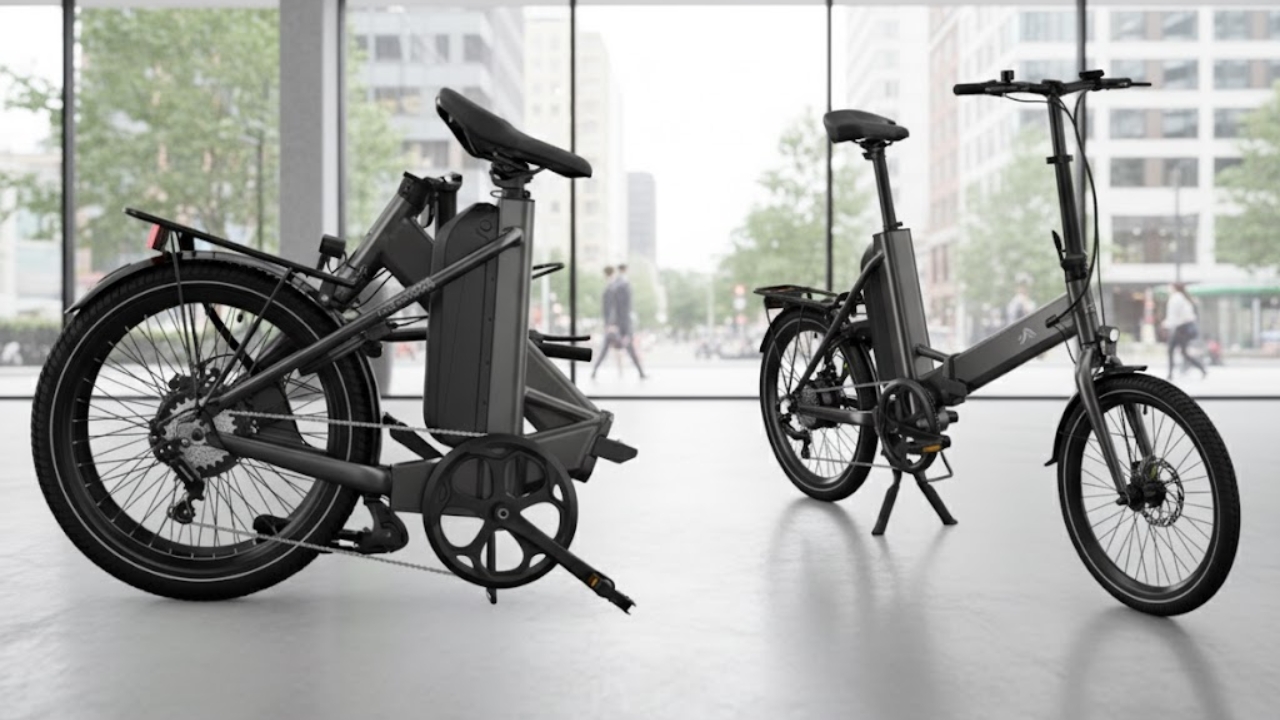Lidl has surprised many by stepping into the electric mobility space with the debut of its €999 folding electric bike. Known primarily for its supermarket chains and budget-friendly household products, Lidl’s move into the e-bike sector signals a growing trend where mainstream retailers are tapping into sustainable transport solutions. This launch is not just about affordability; it reflects how electric bikes are becoming more accessible to everyday consumers who may have previously considered them too expensive or niche.
Why Folding Electric Bikes Are Gaining Popularity
Folding electric bikes have carved out a unique niche in urban commuting. Their compact design allows riders to fold and carry them into offices, apartments, or public transport systems without hassle. For city dwellers who face challenges with storage space or need to combine cycling with train or bus travel, folding e-bikes offer unmatched convenience. Lidl’s entry into this category highlights the increasing demand for practical solutions that blend portability with eco-friendly mobility.
The Price Point That Changes the Game
At €999, Lidl’s folding e-bike is positioned as a budget-friendly alternative to many established brands that often retail well above €1,500. This competitive pricing makes electric mobility more attainable for a wider audience. Lidl’s reputation for value-driven products adds credibility to the idea that consumers can now access reliable e-bike technology without breaking the bank. For families, students, or professionals seeking affordable commuting options, this price point could be a turning point in adoption.
Design and Build Quality Expectations
While Lidl has not traditionally been associated with high-end cycling gear, the brand is known for delivering solid quality at accessible prices. The folding e-bike is expected to feature a sturdy frame, user-friendly folding mechanism, and practical components suited for daily use. The design likely emphasizes durability and simplicity, ensuring that even first-time e-bike users can operate it with ease. Compact wheels, adjustable handlebars, and a lightweight structure are anticipated to make it versatile for different riders and commuting scenarios.
Battery and Motor Performance
Performance is a critical factor in any electric bike, and Lidl’s offering is expected to balance efficiency with affordability. A mid-range battery capacity should provide enough power for typical urban commutes, likely offering a range of 40 to 60 kilometers on a single charge. The motor is expected to deliver smooth assistance, helping riders tackle inclines and longer distances without excessive effort. While it may not compete with premium e-bikes in terms of advanced features, Lidl’s model is designed to meet the practical needs of everyday riders.
Target Audience for Lidl’s Folding E-Bike
The primary audience for Lidl’s folding electric bike includes urban commuters, students, and budget-conscious professionals. City riders who face traffic congestion and limited parking will find the folding design particularly appealing. Additionally, individuals who want to reduce their reliance on cars or public transport without investing in high-cost e-bikes will see Lidl’s model as a practical solution. The affordability also opens doors for younger riders or those new to cycling who want to experiment with electric mobility.
Sustainability and Eco-Friendly Appeal
Electric bikes are increasingly recognized as a sustainable alternative to cars and motorcycles. Lidl’s entry into the market aligns with broader environmental goals by encouraging more people to adopt eco-friendly commuting habits. By offering a folding e-bike at an accessible price, Lidl is contributing to reducing carbon emissions and promoting healthier lifestyles. This move also reflects the growing consumer demand for products that combine convenience with sustainability.
Comparison With Established Brands
When compared to established e-bike manufacturers, Lidl’s folding electric bike stands out primarily for its affordability. While premium brands may offer advanced features such as integrated smart displays, higher-capacity batteries, or specialized suspension systems, Lidl’s model focuses on delivering essential functionality at a fraction of the cost. For riders who prioritize practicality and value over luxury, Lidl’s e-bike could be a compelling alternative.
The Role of Supermarkets in Mobility Innovation
Lidl’s launch demonstrates how supermarkets are evolving beyond traditional retail. By venturing into electric mobility, Lidl is positioning itself as more than just a grocery provider. This diversification reflects a broader trend where supermarkets are becoming lifestyle brands, offering products that cater to modern consumer needs. The folding e-bike is not just a product; it represents Lidl’s ambition to be part of the sustainable transport movement.
Potential Challenges and Consumer Expectations
Despite the excitement, Lidl’s folding e-bike may face challenges in convincing cycling enthusiasts of its reliability. Questions about long-term durability, after-sales service, and spare parts availability are likely to arise. Consumers will expect Lidl to provide adequate support, warranties, and maintenance options to ensure confidence in their purchase. Meeting these expectations will be crucial for Lidl to establish credibility in the competitive e-bike market.
Impact on Urban Commuting Trends
The introduction of Lidl’s folding electric bike could influence urban commuting trends by making e-bikes more mainstream. Affordable pricing and supermarket availability mean that more people can access electric mobility without visiting specialized bike shops. This democratization of e-bike ownership could lead to increased adoption, reduced traffic congestion, and a shift toward greener cities. Lidl’s move may also encourage other retailers to explore similar initiatives, further expanding the market.
Lifestyle Benefits of Folding E-Bikes
Beyond commuting, folding electric bikes offer lifestyle benefits that resonate with modern consumers. They provide flexibility for leisure rides, weekend trips, and short errands. Riders can easily store them in small apartments or carry them on public transport, making them versatile for different scenarios. Lidl’s model, with its accessible price, allows more people to experience these benefits without significant financial commitment.
The Future of Affordable Electric Mobility
Lidl’s folding e-bike represents a step toward the future of affordable electric mobility. As technology advances and consumer demand grows, more retailers are likely to introduce budget-friendly options. This trend could reshape the transportation landscape, making sustainable commuting solutions widely available. Lidl’s initiative highlights how affordability and practicality can drive adoption, paving the way for a new era of accessible electric transport.
Conclusion: Lidl’s Bold Step Into Urban Mobility
The debut of Lidl’s €999 folding electric bike marks a bold step into the urban mobility market. By combining affordability, practicality, and sustainability, Lidl has positioned itself as a surprising yet significant player in the e-bike sector. While challenges remain in terms of consumer trust and long-term support, the launch reflects a growing shift toward accessible electric transport. For urban commuters seeking a reliable, eco-friendly, and budget-conscious solution, Lidl’s folding e-bike could be the beginning of a new chapter in everyday mobility.

